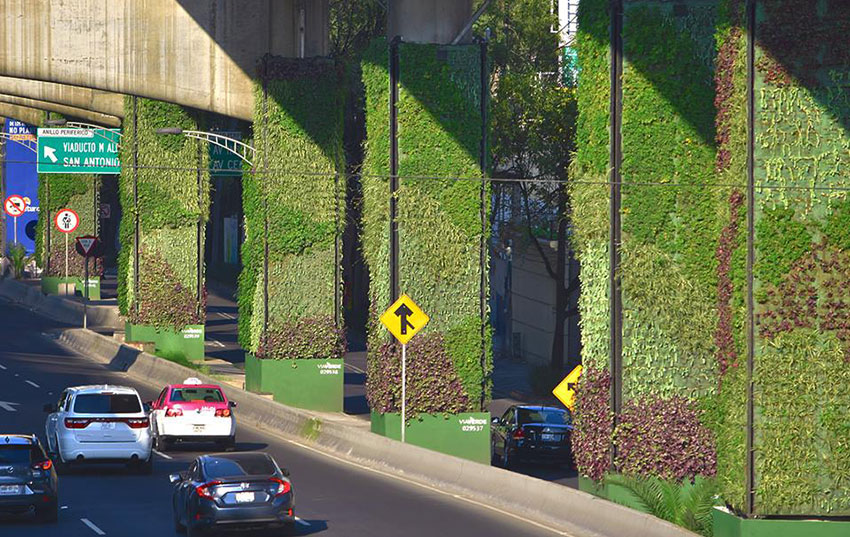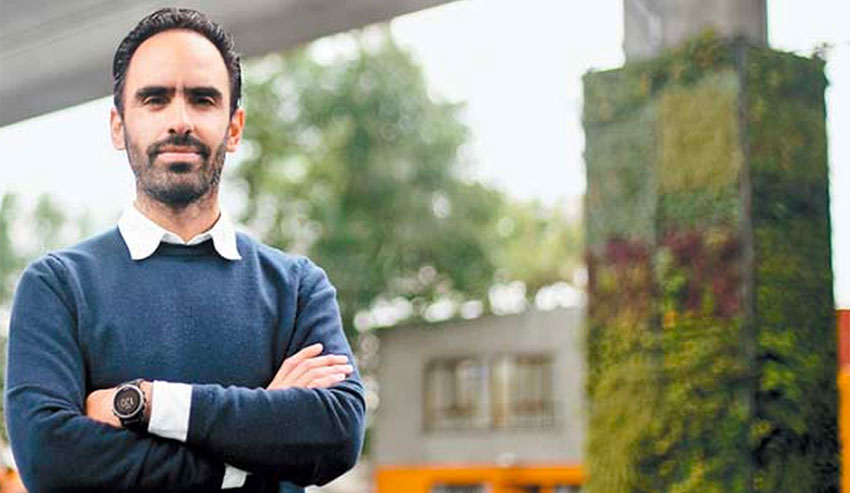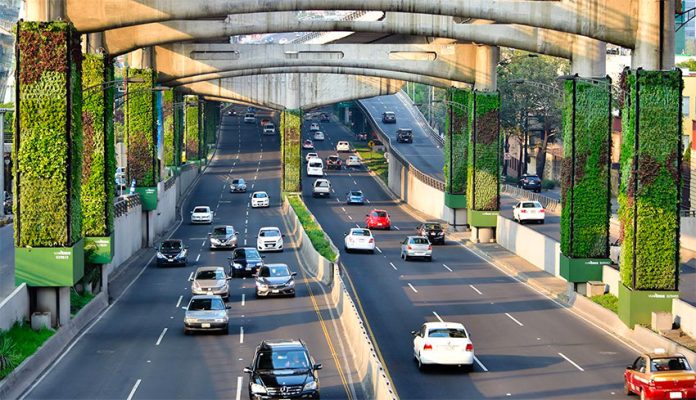A group of young Mexicans who installed vertical gardens along one of Mexico City’s busiest roads is preparing to take their urban greening project around the world.
Four years ago, architect Fernando Ortiz Monasterio collected more than 85,000 signatures in support of his company’s proposal to install vertical gardens on the columns that support the elevated section of Anillo Periférico, the capital’s outer ring road.
The Mexico City government agreed to the project – called Vía Verde (Green Way) – and today the commute of motorists who use the road is far less gray than it would otherwise be.
The gardens also absorb traffic noise and help to reduce air pollution.
The World Economic Forum this year recognized Ortiz and his team as technology pioneers, which allows them to participate in the international organization’s initiatives, activities and events for innovative entrepreneurs.

The recognition has drawn even more attention to the Vía Verde project, in which architects, urban planners, botanists and gardeners participate.
“We’ve been invited to replicate this technology not just in Mexico but also in other countries like the United States and some [nations] in South America, Europe and Asia,” Ortiz told the newspaper Milenio.
“We’re drawing up a strategic international growth plan in order to continue giving Mexico a great name,” he added.
Ortiz said that new vertical garden projects are scheduled to begin in the United States and Central America within the next six months.
He expects “significant challenges” in executing the projects but expressed confidence that his team will be capable of meeting them.
Ortiz explained that the Vía Verde project incorporates a lot of patented technology that was developed by young Mexicans.

“Each [vertical garden] column has sensors that communicate in real time the environmental conditions [related to] water, light, temperature and nutrients. That lets us know remotely, through the internet, what each plant needs,” he said.
Ortiz added that each pillar has its own watering system that can be activated remotely, ensuring that all of the plants get the amount of water and nutrients they need on a daily basis.
The Vía Verde project receives no government funding, relying instead on the support of around 50 private companies.
In exchange for their investment, they are allocated advertising space that is in incorporated into one in 10 vertical garden columns.
In addition to expanding overseas, Ortiz said, an additional 800 vertical gardens are planned for greater Mexico City over the next 18 months.
By 2030, the goal is to cover 10 million square meters of space on walls, roofs, bridges and tunnels in the capital with vertical gardens, he said, conceding that even if that target is met, Mexico City still won’t be green enough.
“. . . More than 40 million square meters of new green areas are needed to comply with the minimum recommendation of the World Health Organization,” Ortiz said.
The architect is also exploring opportunities to expand the project to other cities such as Monterrey, Guadalajara and Puebla.
A total of 250 people are employed directly by the Vía Verde initiative, which also generates 750 indirect jobs.
In addition, 100 people who have been sentenced by the courts to community service make the bags in which 15 different types of plants are placed before they are installed in the gardens.
Source: Milenio (sp)
